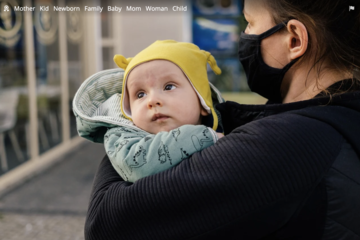Results for "eco"
14 Results
No Preview Available
CFP: Translation Networks in the Decolonising World, 1950s–1970s
Translation Networks in the Decolonising World, 1950s–1970sKing's College, University of Cambridge | 24–25 April 2026
The 1950s to the 1970s was a transformative period marked by anticolonial struggles, national independences, and non-aligned solidarities across Africa, Asia, and Latin America. These groundbreaking political shifts went hand-in-hand with profound cultural and ideological exchanges across continents. Central to these exchanges were translation networks—dynamic, often informal systems through which ideas filtered across linguistic and national boundaries. These networks not only facilitated the dissemination of anticolonial and more broadly revolutionary thought, but also helped forge new identities and solidarities in a bipolarised world. From clandestine literature, revolutionary manifestos, political speeches, to broadcasting and print journalism, translation operated as an essential tool for decolonisation. Yet, despite their significance, these translation networks remain underexplored. This conference seeks to shed light on the multifaceted role of translation in the decolonising world between the 1950s and 1970s. It seeks to examine how translation—whether cultural or linguistic, diplomatic or political—served as a bridge for ideas, theories, and strategies that fueled anticolonial struggles, fostered regional solidarities, and contributed to the dissemination of counterhegemonic discourses. This conference seeks to redress narratives that often overlook translation’s role in shaping political and cultural transformation by foregrounding the networks of translation that enabled dialogue between communities, intellectuals, and revolutionary movements. It aims to explore how translation practices facilitated the circulation of anti-colonial ideas, shaped notions of identity and sovereignty, and influenced the formation of new political and cultural realities in the decolonising world.
We invite proposals for papers of relevance to the subject of the conference, which might include considerations of:
The role of translation in the dissemination of anticolonial thought;
The translation of revolutionary texts (e.g., manifestos, poetry, political speeches, print journalism) as well as oral traditions and indigenous knowledge that supported anticolonial narratives;
The role of translation as a tool for transnational and transcontinental solidarity;
The role of transnational and transcontinental alliances (e.g., the Non-Aligned Movement) in facilitating ideological exchanges and collaborations;
The role of translation in national, transnational, and transcontinental conferences, festivals, and organisations;
The translation and/or adaptation, reinterpretation, and dissemination of Afro-Asianism, Marxism, nationalism, Pan-Africanism, and/or Pan-Arabism;
The influence of radio, print, and emerging broadcasting or recording technologies in spreading anticolonial ideas in translation;
The role and agency of individual translators in establishing transnational and transcontinental connections;
Comparative perspectives on the intersection of translation and decolonisation in Africa, Asia, and Latin America.
The conference will be in-person at King’s College, University of Cambridge.
To submit a proposal, please include in one document the following information: proposals for 20-minute papers (300 words), paper title, and participant(s) biography (100 words).
Please submit proposals by e-mail to Georgia Nasseh (gsn25 [at] cam.ac.uk).
The deadline for submissions is 15 October 2025.
Contact Information
Dr Georgia NassehResearch Fellow in the Literatures of the Global SouthKing's College, University of Cambridge
Contact Email
gsn25@cam.ac.ukRead more: https://networks.h-net.org/group/announcements/20122618/cfp-translation-networks-decolonising-world-1950s-1970s
Read more

By: Anne miller New vijayalaxmi sant...
Due Date: Aug, 27, 2025
Other
Leave a comment

U.S. Embassy Bamako Public Diplomacy Annual Program Statement
Introduction
PAS Bamako invites proposals for projects that strengthen ties between the United States and Mali by promoting bilateral cooperation and highlighting shared values and shared interests. All programs must advance one of the key priorities listed below and must promote an element of American culture or have a connection with American expert/s, organization/s, or institution/s in a specific field that will promote increased ties between the United States and Mali and foster understanding of U.S. policies and perspectives. The PAS Small Grants program is NOT a vehicle to fund development projects, nor can these grants be used to support for-profit entities.
Examples of PAS Small Grants Program projects include, but are not limited to:
Artistic and cultural workshops, joint performances, and exhibitions
Academic and professional lectures, seminars, and speaker programs
Cultural heritage conservation and preservation programs
Civic engagement and social activism programs
Key Priority Areas and Audiences
The purpose of projects funded under the annual program statement is to strengthen ties between Americans and Malians as we work together to make progress toward the goals outlined below.
Strengthening independent media and fighting disinformation through media literacy, training and other engagement;
Reinforcing existing Sister City relationships or other relationships between U.S. and Malian institutions (e.g. universities or museums)
Ensuring participation of citizens, especially women and youth,
in the democratic process;
Fostering economic growth and entrepreneurship;
Read more

By: Anne miller New vijayalaxmi sant...
Due Date: Jan, 27, 2022
Youth empowerment
+2
Leave a comment

Important and easy ways of Conserve Water
Conserving water helps us by supplying more amount of water for longer usage. It has become necessary in all areas because these natural resources are reducing along with the increasing population and their usages.
There are several ways to conserve water. Here are some important and easy ways for the conservation of water
Keeping the tap closed when not in use.
Check for the openings or leaks in water distribution pipes.
Make sure to use collected rainwater for gardening or washing purpose.
Always have a measure of how many buckets of water is wasted in a day and try to reduce.
Do not run more water than necessary while washing and cleaning clothes, utensils, etc.
Do not prolong your bathing. Go for a quick shower rather than wasting buckets of water
Rainwater harvesting is one of the best method used for conserving water. There are different methods used to preserve rainwater instead of getting it wasted.
Read more

By: rupali
Due Date: Dec, 27, 2021
Agri-food systems
+1
Leave a comment

Agriculture
The four-part framework (investigating the issue, recognizing perspectives, communicating ideas, taking action) incorporated into this micro-credential reflects the changing role of our students in the 21st century. Students must have a substantive understanding of the complex, diverse, and interdependent world in which they live. Educators will delve into the research that supports the students becoming globally competent through inquiry. The four-part framework is described below. Additional resources are available in the “Supporting Rationale and Research” section and should be examined prior to completing this micro-credential.
Read more

By: Scarlet Patrick
Due Date: Aug, 20, 2021
Agri-food systems
Leave a comment

Science and Technology Scholar - 2
The four-part framework (investigating the issue, recognizing perspectives, communicating ideas, taking action) incorporated into this micro-credential reflects the changing role of our students in the 21st century. Students must have a substantive understanding of the complex, diverse, and interdependent world in which they live. Educators will delve into the research that supports the students becoming globally competent through inquiry. The four-part framework is described below. Additional resources are available in the “Supporting Rationale and Research” section and should be examined prior to completing this micro-credential.
Read more

By: Scarlet Patrick
Due Date: Jun, 24, 2021
Agri-food systems
+2
Leave a comment

Science and Technology Scholar
The four-part framework (investigating the issue, recognizing perspectives, communicating ideas, taking action) incorporated into this micro-credential reflects the changing role of our students in the 21st century. Students must have a substantive understanding of the complex, diverse, and interdependent world in which they live. Educators will delve into the research that supports the students becoming globally competent through inquiry. The four-part framework is described below. Additional resources are available in the “Supporting Rationale and Research” section and should be examined prior to completing this micro-credential.
Read more

By: Scarlet Patrick
Due Date: Jun, 24, 2021
Agri-food systems
+2
Leave a comment

Agri and food Scholar
The four-part framework (investigating the issue, recognizing perspectives, communicating ideas, taking action) incorporated into this micro-credential reflects the changing role of our students in the 21st century. Students must have a substantive understanding of the complex, diverse, and interdependent world in which they live. Educators will delve into the research that supports the students becoming globally competent through inquiry. The four-part framework is described below. Additional resources are available in the “Supporting Rationale and Research” section and should be examined prior to completing this micro-credential.
Read more

By: Scarlet Patrick
Due Date: May, 21, 2021
Agri-food systems
+1
Leave a comment

Global Competence - Grant
The four-part framework (investigating the issue, recognizing perspectives, communicating ideas, taking action) incorporated into this micro-credential reflects the changing role of our students in the 21st century. Students must have a substantive understanding of the complex, diverse, and interdependent world in which they live. Educators will delve into the research that supports the students becoming globally competent through inquiry. The four-part framework is described below. Additional resources are available in the “Supporting Rationale and Research” section and should be examined prior to completing this micro-credential.
The four-part framework (investigating the issue, recognizing perspectives, communicating ideas, taking action) incorporated into this micro-credential reflects the changing role of our students in the 21st century. Students must have a substantive understanding of the complex, diverse, and interdependent world in which they live. Educators will delve into the research that supports the students becoming globally competent through inquiry. The four-part framework is described below. Additional resources are available in the “Supporting Rationale and Research” section and should be examined prior to completing this micro-credential.
Read more

By: Scarlet Patrick
Due Date: May, 15, 2021
Water, energy, and the...
Leave a comment

Global Competence Framework
The four-part framework (investigating the issue, recognizing perspectives, communicating ideas, taking action) incorporated into this micro-credential reflects the changing role of our students in the 21st century. Students must have a substantive understanding of the complex, diverse, and interdependent world in which they live. Educators will delve into the research that supports the students becoming globally competent through inquiry. The four-part framework is described below. Additional resources are available in the “Supporting Rationale and Research” section and should be examined prior to completing this micro-credential.
Read more

By: Scarlet Patrick
Due Date: May, 15, 2021
Culture and society
+1
Leave a comment

Agri and food Scholar
The four-part framework (investigating the issue, recognizing perspectives, communicating ideas, taking action) incorporated into this micro-credential reflects the changing role of our students in the 21st century. Students must have a substantive understanding of the complex, diverse, and interdependent world in which they live. Educators will delve into the research that supports the students becoming globally competent through inquiry. The four-part framework is described below. Additional resources are available in the “Supporting Rationale and Research” section and should be examined prior to completing this micro-credential.
Investigate the worldStudents must engage in activities and explorations where they are able to investigate their world beyond their immediate environment. Research that is age-appropriate should be conducted where problems are framed that are significant at the local, regional, or global level.
Read more

By: Jenny Reze Scarlet
Due Date: May, 8, 2021
Health and nutrition
+1
Leave a comment
Earth’s natural greenhouse effect
The social-ecological model emerged from ecological systems theory (Bronfenbrenner, 1979), which explicitly sought to examine transactions between persons and their environments. The model stresses cross-level influences, in which community or organizational environments can shape individual behavior (top-down effects), but also examines how individuals form groups or take actions that may affect higher level organizational or community spheres (bottom-up effects). The Centers for Disease Control and Prevention has incorporated social-ecological models into a number of its health promotion and disease prevention efforts.
The simple onion or Russian doll rendering of social-ecological relations as concentric circles is not in itself very informative. However, flowchart models based on such relationships can be useful for specifying hypothesized cross-level influences.
Read more

By: rupali
Due Date: Mar, 20, 2021
Culture and society
+2
Leave a comment

Africa's rapid economic transformation
Check out this article co-authored by Thom Jayne, Adesoji Adelaja, and one of AAP's co-directors, Richard Mkandawire.
https://www.rural21.com/english/current-issue/detail/article/africas-rapid-economic-transformation.html
Read more

By: Sali Hamilton
Due Date: Dec, 26, 2020
Culture and society
+3


Leave a comment